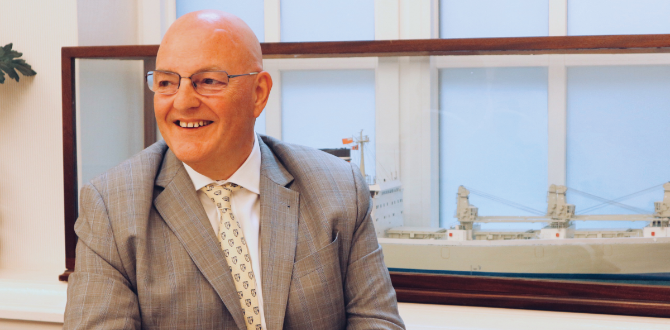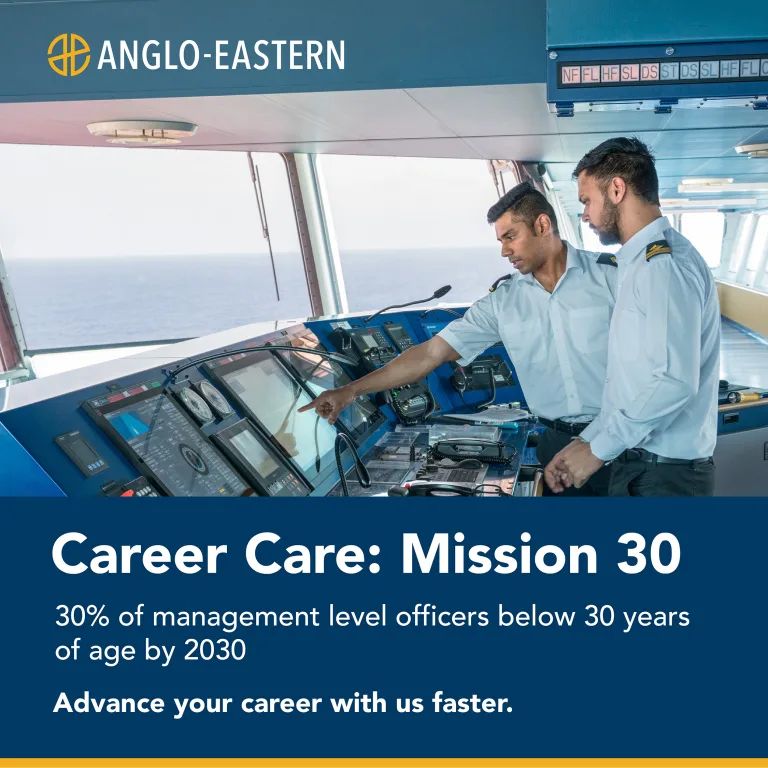
Newspaper – Proto Thema 21/09/2025
The Greek shipping industry remains a global power, but the country's shipbuilding industry is still struggling with weaknesses that do not allow its full potential to be utilized. The banker and experienced market expert George Xiradakis sounds the alarm: without clear financing rules, transparency in financial data, and cooperation between banks, shipping companies/shipowners, and shipyards, Greece cannot claim a share of the large orders for new ships, especially in specialized vessels where the global – and particularly the European –market is seeking builders.
These vessels can include all types of short-sea ships such as passenger ships, small cargo vessels up to 15,000 tons of any cargo type, specialized support ships for land zones and coastlines such as tugboats, escort ships, and barges, and finally leisure and recreational vessels such as small and large yachts as well as small cruise ships.
He explains how the financing process of a shipbuilding project works in practice, what the main obstacle is for Greek shipyards and ferry companies, and why compliance with ESG criteria – namely environment, society, and corporate governance – is a precondition for unlocking financing flows.
He also stresses that without strengthening their balance sheets, small ferry companies will be left out of the game, while highlighting the importance of trust that each shipyard must inspire towards banks, companies/clients, and of course investors and financial support organizations.
Q: To begin with, the basics: how does the financing of a shipbuilding project start in practice?
A: For a shipbuilding to be completed, a shipbuilding contract must first be signed. On one side, the shipowner must prove that they have the ability to pay the agreed installments. On the other side, the shipyard is obliged to issue a performance guarantee – the so-called refund guarantee – for any amount it receives as an advance.
Usually, payment is made gradually: 10% upon signing the contract, 10% with the first cut of steel, another 10% at keel laying, 10% at launching, and the remaining 50% upon delivery of the vessel. At each installment paid by the shipowner, the shipyard must issue a corresponding guarantee. This means that both parties must have access to bank financing.
Q: What is the biggest obstacle for the Greek shipbuilding industry today, particularly regarding the need to renew the ferry fleet?
A: The problem is twofold. On one side, Greek ferry companies, especially the smaller ones, do not provide the corporate transparency that banks require. They do not present sufficient data to prove they can sustain the cost of new investments, and because the market operates haphazardly and without transparency rules, they cannot convince financiers of their capabilities. On the other side, our shipyards lack a long track record of projects to convince banks to open financing lines or issue guarantees. This avoidance of transparency often aims either at tax evasion, direct or indirect, or at speeding up business cycles by circumventing bureaucracy. This creates a vicious cycle: without financing there can be no shipbuilding, and without new projects, shipyards do not build a history that would make them trustworthy.
Q: Is there a way out?
A: Of course. Compliance with financing rules and especially ESG standards is necessary. Corporate governance is critical and absolutely essential. Banks demand full transparency in financial data from ferry companies and shipyards, as well as all their clients, and rightly so. What they do not do, however, is create specialized departments dedicated to transforming the shipbuilding industry for mutual benefit. They have the market "in their hands" and let other markets enjoy the fruits.
Furthermore, compliance with the new market requirements can be achieved through mergers that will increase company size, as well as by boosting capital needs either through new investors or through the stock market.
Q: What about the large ferry companies?
A: The situation here is very different. We have strong groups that could be clients of Greek shipyards. On one hand, Minoan Lines, belonging to the Grimaldi Group, relies solely on its strong balance sheet and highly competitive and successful management both nationally and internationally, enabling medium-sized investments. They undoubtedly have immediate access to every form of investment or financing support from international markets, as reflected in the group’s multibillion investment program in newbuildings.
Attica is another example of a company which, due to its size, can raise funds but on a smaller scale. It is one of the 10 largest ferry groups in the world alongside Minoan (Grimaldi). However, even there issues exist due to its shareholder structure, with high involvement of a Greek bank, something considered unsuitable by many new investors, thus reducing its flexibility in attracting fresh capital. Nevertheless, it has survived difficult conditions, absorbed market shocks such as the ANEK case, thanks to the constructive support of the Piraeus Bank Group.
A third company has great potential in transportation services due to its size, but it is widely unknown how financially strong it is due to lack of transparency. We assume results are good thanks to favorable treatment of high-speed ferries and smart business moves. For all three, the expected growth of Greek shipyards represents a major development opportunity.
Q: So the problem lies mainly with smaller companies?
A: Exactly. The smaller ferry companies have not realized the need for transparent fleet management. As a result, they do not build a track record that allows them to borrow. This is the big challenge: whether the EU and Greek banks will support this sector with targeted financial tools. Responsibility lies mainly with regulators – the state – which continues to lull small players instead of enforcing restructuring due to fear that the transport network will not be covered.
Strict compliance with European transparency regulations and financial support to all companies providing public services must become essential conditions for saving and developing the ferry and shipbuilding sector.
Q: What happens if nothing changes?
A: We will continue to see major orders going to foreign shipyards, while our own shipyards will only deal with refurbishments of old ships, as seen recently with 20- and 30-year-old vessels "modernizing" the Greek market. Greece will lose the great opportunity to build new ships it is capable of producing and competing with internationally. The alarm bell is already ringing.
If we do not proceed with mergers, capital raising, and substantial transparency improvements, the Greek shipbuilding industry will not be able to compete internationally. The triptych shipyards–financiers–and above all the state must seize the opportunity. Many tugs and small ships have already been built in Turkey with Greek money.
Q: Is there interest from foreign investors?
A: Yes, and it is positive. The participation of foreign funds in Greek shipyards shows confidence. For example, an American state fund supporting a shipyard, as in Elefsina, sends a strong signal to the market. The same applies when proven successful entrepreneurs acquire shipyards, as with Giorgos Prokopiou – this alone facilitates financing. Likewise, Salamis shipyards served French shipyards in the defense sector and are now building relationships with Northern European shipowners for newbuilds. Other shipyards in Perama have also developed trust with Dutch and Danish companies, while Paris Dragnis’s super-yacht yards continue expanding with new investments.

The opinions expressed herein are the author's and not necessarily those of The Xinde Marine News.
Please Contact Us at:
media@xindemarine.com


 Strong outlook for MacGregor offshore capabilities
Strong outlook for MacGregor offshore capabilities  Greek Shipyards and Financing - Interview with Geor
Greek Shipyards and Financing - Interview with Geor  LISW25 Exclusive Interview – Denis Petropoulos: C
LISW25 Exclusive Interview – Denis Petropoulos: C  Exclusive Interview | BSM CEO: "We Must Take the
Exclusive Interview | BSM CEO: "We Must Take the  From Lab to Vessel: Inside WinGD's Ammonia Engine I
From Lab to Vessel: Inside WinGD's Ammonia Engine I  "Become a Captain or Chief Engineer by Age 30":
"Become a Captain or Chief Engineer by Age 30":